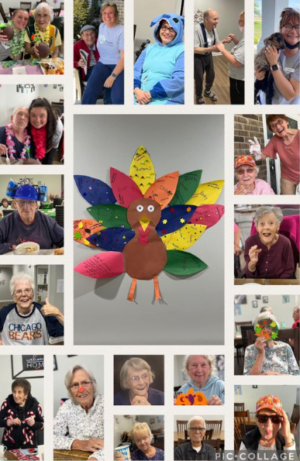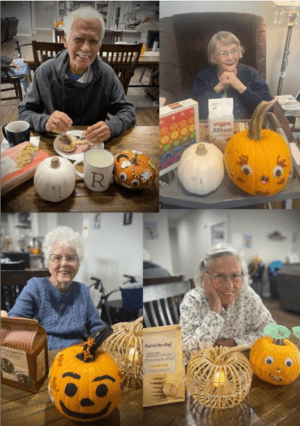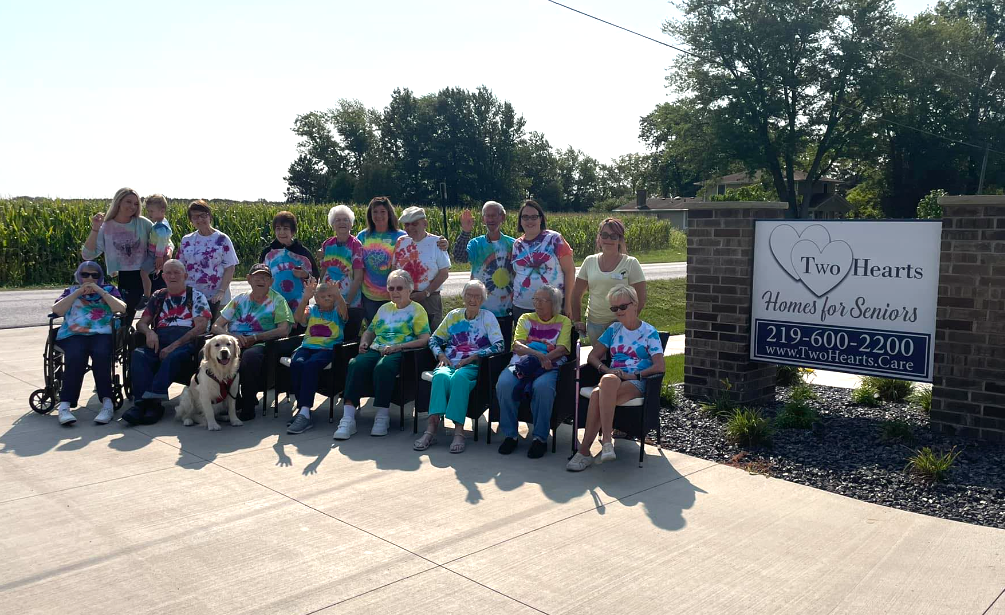What is Residential Assisted Living?
 Submitted by Janel Robilotta
Submitted by Janel Robilotta
Owner / Administrator
Two Hearts Homes for Seniors
Residential Assisted Living is a form of long-term care that provides seniors with the necessary support and services to live a comfortable and dignified life. It’s an alternative to traditional nursing homes, offering a more home-like atmosphere and personalized attention.
In this article, we’ll explore what Residential Assisted Living is, what it offers, and who it’s for.
Residential Assisted Living
Residential Assisted Living is a type of senior care that provides a home-like setting for older adults who need some help with their daily activities. This type of care offers a range of services, including meals, housekeeping, transportation, and personal care.
It’s designed for seniors who can no longer live on their own but do not require the level of care provided by a nursing home.
The atmosphere in a residential assisted living community is often much more comfortable and welcoming than in a traditional nursing home. These facilities typically have private apartments or rooms, and residents are encouraged to decorate and personalize their living spaces.
They also offer communal areas, such as dining rooms, living rooms, and outdoor spaces, where residents can socialize and enjoy their hobbies.
What Does Residential Assisted Living Offer?
Residential Assisted Living facilities offer a wide range of services and amenities to make life easier and more enjoyable for residents. Some of the most common services include:
Personal Care
Many residents need help with bathing, dressing, and other personal hygiene tasks. In a residential assisted living community, this care is provided by trained staff who are available around the clock.
Meals
Most Residential Assisted Living facilities offer three meals a day, served in a communal dining room. Meals are usually well-balanced and nutritious, and residents have the option to request special diets if needed.
Housekeeping
Residents don’t have to worry about cleaning or laundry, as these tasks are taken care of by the staff.
Transportation

Many Residential Assisted Living facilities provide transportation for residents to appointments, shopping trips, and other outings.
Social Activities
Most Residential Assisted Living facilities offer a variety of social and recreational activities for residents, including exercise classes, games, arts and crafts, and entertainment.
Medication Management
Staff is available to help residents manage their medications and ensure they are taken correctly.
Emergency Response
Residential Assisted Living facilities are equipped with emergency response systems to ensure residents receive prompt and appropriate care in case of a medical emergency.
Who is Residential Assisted Living For?
Residential Assisted Living is a good option for seniors who need some help with their daily activities but do not require the level of care provided by a nursing home. It’s ideal for seniors who are able to live independently but need a little extra support.
Some of the factors that may make Residential Assisted Living a good choice include:
Difficulty with Daily Activities
Many seniors struggle with activities of daily living, such as bathing, dressing, and grooming. In a residential assisted living community, staff is available to provide assistance with these tasks.
Health Issues

Some seniors have health conditions that require regular monitoring and medication management. Residential Assisted Living facilities can provide these services, ensuring residents receive the care they need.
Isolation
Many seniors live alone and may feel isolated and lonely. Residential Assisted Living communities offer social activities and opportunities for residents to connect with others, reducing feelings of isolation.
Safety
Some seniors are at risk of falling or experiencing other accidents in their homes. In a Residential Assisted Living community, staff is available 24/7 to provide assistance and ensure residents’ safety.
Assisted Living Facility vs Residential Assisted Living
As people age, they often require some level of assistance with daily tasks and activities. When this happens, families must decide which type of care setting is most appropriate for their loved one: Residential Assisted Living or an assisted living facility.
Both options offer similar services, but there are some key differences that can impact the quality of care, cost, and overall experience. Let’s explore these differences to help you make an informed decision.
Residential Assisted Living
Residential assisted living (RAL) is a smaller, more intimate setting than an assisted living facility. RALs typically house 4-10 residents in a home-like environment. Caregivers provide 24/7 assistance with activities of daily living (ADLs) such as bathing, dressing, and medication management.
RALs often have a higher caregiver-to-resident ratio than assisted living facilities, which can result in more personalized care. Additionally, RALs may offer more individualized activities and programming since they have a smaller resident population.
One of the benefits of RALs is the opportunity for socialization and community building. With a smaller number of residents, it’s easier to form relationships and engage in meaningful activities together.
Assisted Living Facility
Assisted living facilities (ALFs) are typically larger, with 25-120 residents. They offer many of the same services as RALs, including assistance with ADLs and medication management. However, the caregiver-to-resident ratio may be lower in ALFs due to the larger number of residents.
ALFs often offer a wider range of amenities and activities than RALs, such as fitness centers, beauty salons, and group outings. However, the larger size can make it more difficult for residents to form close relationships with staff and other residents.
Cost
The cost of both RALs and ALFs varies depending on location, level of care needed, and amenities offered. However, RALs tend to be more affordable than ALFs due to their smaller size and higher caregiver-to-resident ratio.
Two Hearts Residential Assisted Living

Two Hearts Homes for Seniors is a unique solution for senior care, designed to assist residents with activities of daily living while providing privacy and comfort as if they were in their own home.
Family Owned and Operated
The care of our residents is more than a job for us. When someone moves into our home, we are taking them into our lives. We are a family, taking care of families and we’re here to care for yours.
1-2 Caregivers for 5-7 Residents
Two Hearts Home for Seniors has a low number of residents to available caregivers. Depending on the time of day, we can offer 1-2 caregivers for up to 7 residents. Most assisted living facilities has 1 Caregiver taking care of 1-15 residents at the same time.
Nutritious Home Cooked Meals
In our home, meals are home-made from scratch and are served in a comfortable family-style dining room table. We do our own grocery shopping which allows us to cater to each resident’s likes and dislikes. Our menus are carefully designed and approved by a licensed dietitian to offer three balanced meals a day.
Just Like Home
Your loved one has lived their lives in a home-like environment. In larger communities, residents can often feel lost. In our home, each resident will feel like they are a part of an extended family.
Our mission is to make it feel like home.
Flat Rate Pricing
It’s very common for assisted living facilities to have a base rate and a menu of services which are additional costs. Two Hearts Home for Seniors offers one flat and all-inclusive price for the month, with no surprise charges.
Aging in Place
When a resident moves into our home, our goal is to let them age in place. This is more than just a bullet point on our brochure. The care of your loved one is more than a job for us.
Aging in Place gives families and residents comfort that they are in a safe place, that they can call home, for our residents to live the rest of their lives.
Thoughtful Activities
We know how important activities and entertainment area for our residents. Since we have fewer residents to care for, we can customize our activities program to the likes and dislikes of our guests. Some highlights include Music, crafts, exercise, games, movies, socials, and more.
Communication is Key
Our team is just a phone call or text away. Any questions or concerns you may have, we are here to help. You won’t get lost in a maze of receptionists and shift rotations. We keep an open line of communication with our families.
Learn More
Enjoy this tour of the Two Hearts Homes for Seniors from when it was brand new!
 Janel Robilotta
Janel Robilotta
Owner / Administrator
Two Hearts Homes for Seniors
Janel Robilotta is a Licensed Registered Nurse, whose specialties include geriatrics, telemetry, cardiac intensive care, ventricular assist devices, and heart transplant clients.
Before opening Two Hearts Homes for Seniors, she was a professor of nursing at Chamberlain University. Janel has earned the highest level of professional certification in the specialized industry of Residential Assisted Living.

